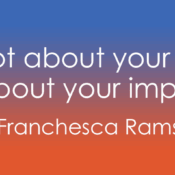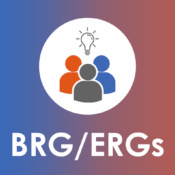![A close-up image shows a magnifying glass over the words "hearing loss" on what appears to be a dictionary or website definition. The text "hearing loss" is displayed in a large, bold, sans-serif font. Below it, in a smaller font, are the phonetic transcriptions: "noun [ U ]" and "us /ˈhirɪŋ ˌlɔːs/". Partially visible below the magnified area, in a smaller, lighter font, is the beginning of a sentence: "the _____ of som____ all of the ability t____". The background is white.](https://2axend.com/wp-content/uploads/2025/07/Hearing-Loss_Website.png)
“Hearing Loss”: Language that’s Not as Inclusive as Intended
Let’s talk about a term that gets thrown around a lot. It appears constantly in healthcare, media, and well-meaning DEI efforts…
“Hearing Loss”
It might sound neutral. Even clinical. But for many Deaf, DeafBlind, and hard of hearing people — myself included — it’s a term that doesn’t appropriately represent who we are, or how we want to be represented.
Yet, even members of the Deaf and hard of hearing community use this term to identify themselves. We’ll discuss why this can be perplexing later on.
What is "Hearing Loss"?
Understanding the term "hearing loss" hinges on defining what it actually is.
In the United States, 48 million individuals have “non-typical” levels of hearing, - including nearly 1 million individuals who use American Sign Language (ASL) as their primary language (Rochester Institute of Technology, 2025).
Additionally, a significant portion of adults, often called 'late-deafened,' experience diminished hearing with age; over 25% of individuals over 60 are late-deafened, affecting one in three seniors aged 65-74 and nearly half of those over 75 (National Institute on Deafness and Other Communication Disorders, 2025).
While some individuals find 'hearing loss' a personal and valid identifier that reflects their unique experience, it's inaccurate to generally categorize all Deaf, DeafBlind, hard of hearing, or late-deafened individuals.
Those born Deaf or hard of hearing, for instance, did not lose something they never had.
Rather, the term “hearing loss” should refer only to individuals who have experienced decreased levels of hearing, not the Deaf and hard of hearing community as a whole.
There’s More to the Story than “Hearing Loss”
Similar to the term “hearing impaired,” the term “hearing loss” centers hearing as the standard and implies that individuals with “non-typical” levels of hearing are incomplete and need to be fixed.
Furthermore, the term 'hearing loss' falls short for any individual that has encountered some sort of decrease in hearing level.
For instance, late-deafened individuals may retain ties to spoken language and 'hearing culture' but navigate new communication challenges, identity shifts, and oftentimes grief. Some find belonging in Deaf or signing spaces -not due to a 'loss’ - but by forming a new identity and connecting with others with shared experiences.
Wherever one is on the spectrum of deafness, the thread that connects us is this:
We are not defined by a perceived absence.
We are shaped by our adaptations, our community, and our autonomy.
While everyone’s journey differs, all identities are equally valid.
Deaf = Culture. Not a Condition.
In the Deaf community, language, values, norms, and history come together to form a rich, vibrant culture. To reduce all of that to a medical diagnosis based on preconceived standards reduces our impressive achievements and legacy to a condition.
Deaf people may describe themselves as having “hearing loss.” They also may identify as Deaf. DeafBlind. Hard of hearing. Late-deafened.
For those of us who are culturally Deaf, we’re not missing something. We’re not hoping to be fixed. We’re proud of who we are not in spite of our deafness, but because of it.
Challenging the widespread use of 'hearing loss' often leads to confusion, dismissive pushback, and the taxing need for forced explanations to those in authority, simply because we assert, “I’m not broken. I don’t have a loss. I’m just Deaf.”
This language can contribute to #TheDDBHHTax — the additional burden carried when we’re forced to explain, correct, or push back against outdated assumptions about our identities.
The Shift to Identity-First Language
Regardless of the industry you work in, language matters!
Here’s some tips to shift the narrative away from “hearing loss” by prioritizing identity-first language:
Instead of: “People with hearing loss”
Say: “Deaf, DeafBlind, and hard of hearing people”
Instead of: “He suffers from hearing loss”
Say: “He is Deaf/hard of hearing” or “He communicates using ASL”
Instead of: “Overcoming hearing loss”
Say: “Navigating communication barriers” or “Engaging in self-advocacy”
Always prioritize the language individuals use for themselves.
Never assume one umbrella term fits all.
After all, identity-first language is an act of respect. Identity-first language like Deaf individual/person, hard of hearing individual, or late-deafened individual/person respects the community and values which an individual belongs to. Being Deaf is a valid, powerful identity.
Saying “Deaf person” rather than “person with hearing loss” isn’t a matter of political correctness. It’s due time to shift the systemic narrative by reframing deafness as something we shouldn’t pity or fix.
The Future of Inclusion is Rooted in Language
When crafting policies, writing captions, or leading training, reflect on your word choice. Referring to individuals by who they are, not what they lack, demonstrates respect and forms the foundation of equity.
If you are Deaf, DeafBlind, or hard of hearing - I implore you to consider your language when representing our community. It’s no longer acceptable to say “hearing impaired,” so why would we imply that hearing was ever “lost”? We must shift the narrative away from what’s perceived as “normal” to build a safe environment where diverse identities are valid and valued.
Last but not least, if your organization is ready to move beyond performative access and into meaningful inclusion, reach out to our team at info@2axend.com for support.



